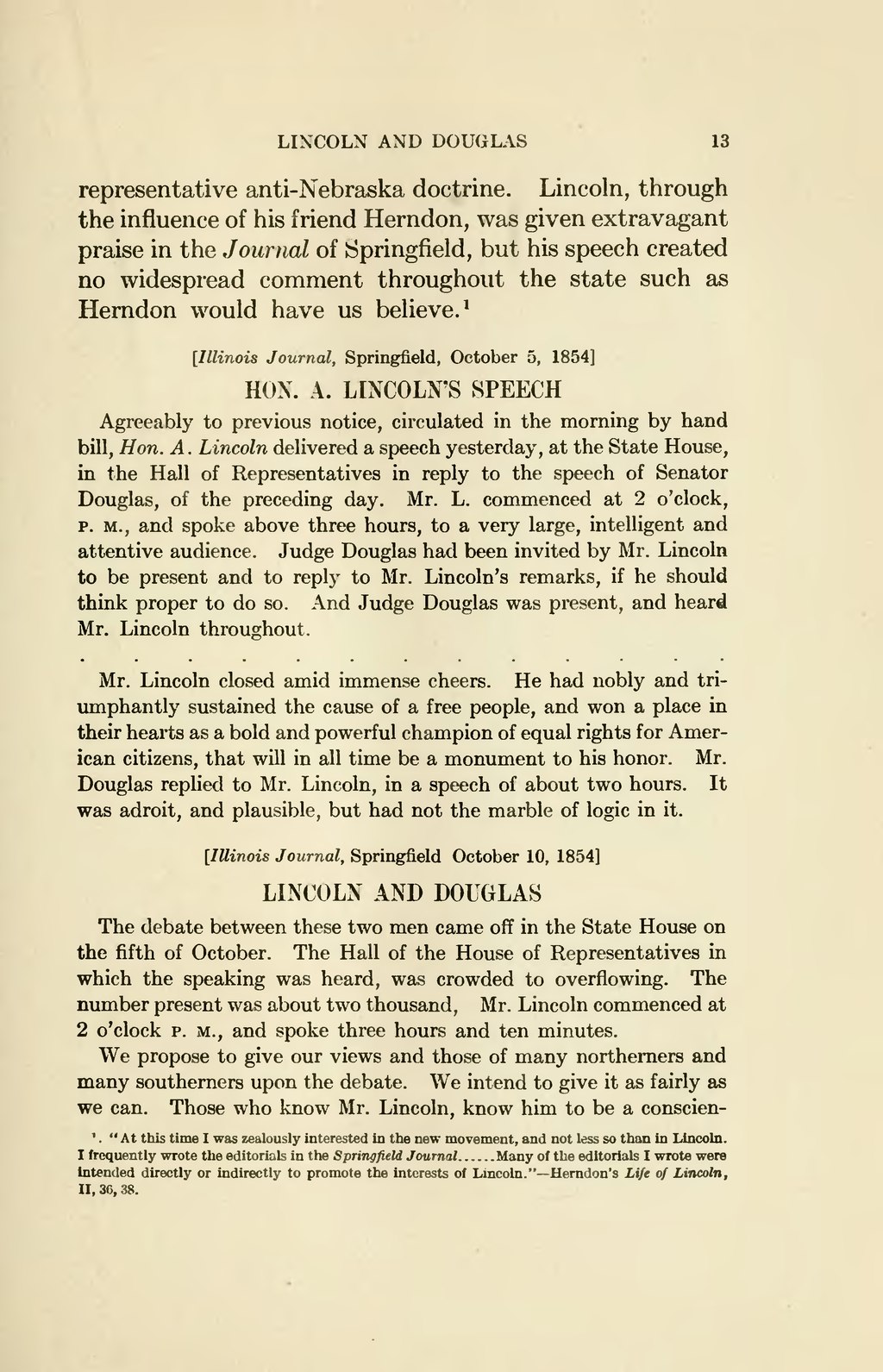representative anti-Nebraska doctrine. Lincoln, through the influence of his friend Herndon, was given extravagant praise in the Journal of Springfield, but his speech created no widespread comment throughout the state such as Herndon would have us believe.[1]
[Illinois Journal, Springfield, October 5, 1854]
HON. A. LINCOLN'S SPEECH
Agreeably to previous notice, circulated in the morning by hand bill, Hon. A. Lincoln delivered a speech yesterday, at the State House, in the Hall of Representatives in reply to the speech of Senator Douglas, of the preceding day. Mr. L. commenced at 2 o'clock, p. m., and spoke above three hours, to a very large, intelligent and attentive audience. Judge Douglas had been invited by Mr. Lincoln to be present and to reply to Mr. Lincoln's remarks, if he should think proper to do so. And Judge Douglas was present, and heard Mr. Lincoln throughout.
Mr. Lincoln closed amid immense cheers. He had nobly and triumphantly sustained the cause of a free people, and won a place in their hearts as a bold and powerful champion of equal rights for American citizens, that will in all time be a monument to his honor. Mr. Douglas replied to Mr. Lincoln, in a speech of about two hours. It was adroit, and plausible, but had not the marble of logic in it.
[Illinois Journal, Springfield October 10, 1854]
LINCOLN AND DOUGLAS
The debate between these two men came off in the State House on the fifth of October. The Hall of the House of Representatives in which the speaking was heard, was crowded to overflowing. The number present was about two thousand, Mr. Lincoln commenced at 2 o'clock p. m., and spoke three hours and ten minutes.
We propose to give our views and those of many northerners and many southerners upon the debate. We intend to give it as fairly as we can. Those who know Mr. Lincoln, know him to be a conscien-
- ↑ "At this time I was zealously interested in the new movement, and not less so than in Lincoln. I frequently wrote the editorials in the Springfield Journal......Many of the editorials I wrote were intended directly or indirectly to promote the interests of Lincoln."—Herndon's Life of Lincoln, II, 36, 38.
